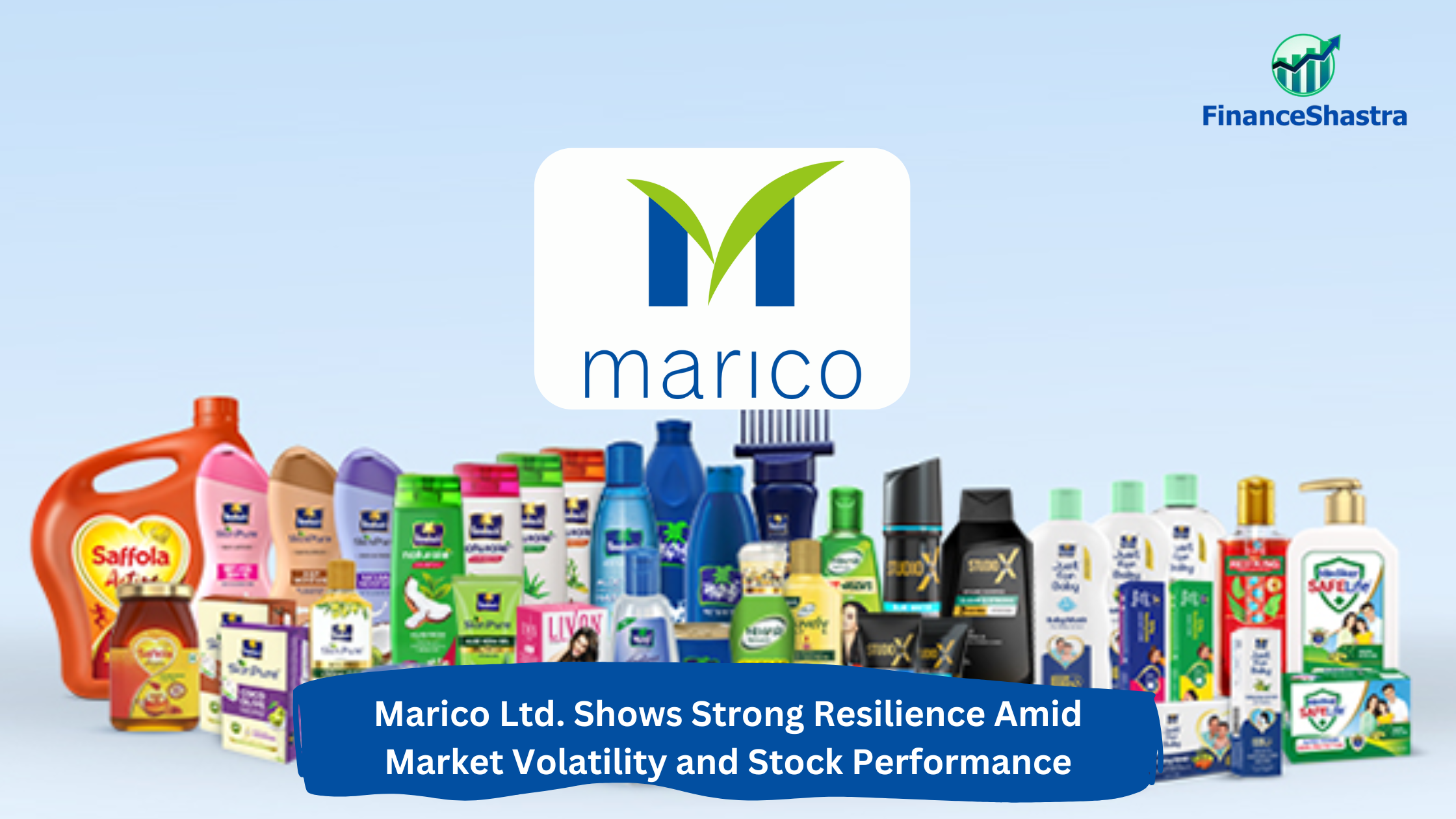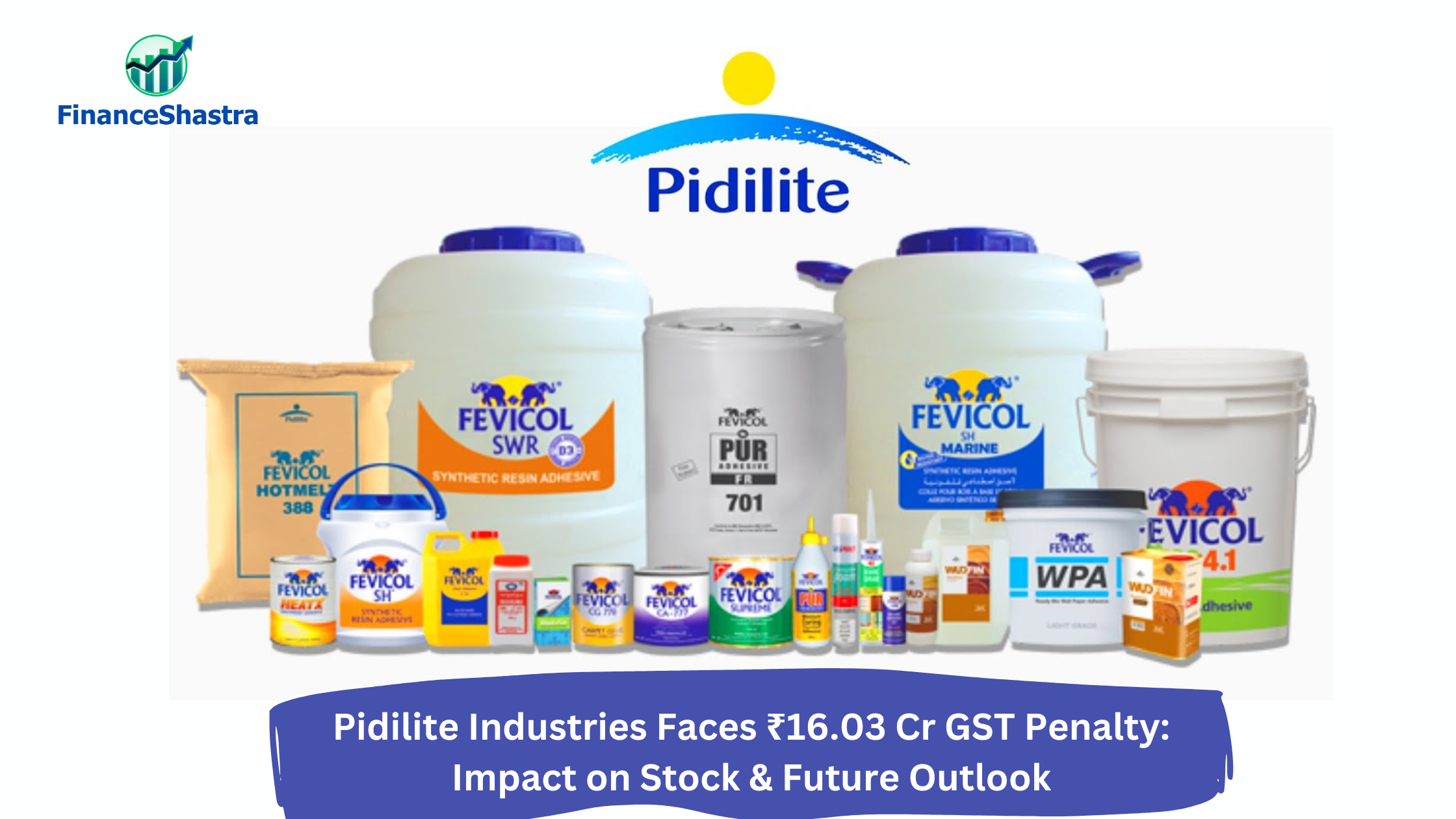Marico Ltd. Shows Strong Resilience Amid Market Volatility and Stock Performance
Business and Industry Overview:
Marico Limited is a big Indian company. It started in 1987. Its head office is in Mumbai. It makes products for health, beauty, and wellness. It makes hair oils, skin care items, cooking oils, healthy food, men’s grooming products, and fabric care products. It owns popular brands like Parachute, Saffola, Livon, Set Wet, and Nihar Naturals. Marico sells products in more than 25 countries in Asia and Africa. It has brands like HairCode, Isoplus, X-Men, and Thuan Phat in other countries. Marico has 8 factories in India. These are in Puducherry, Perundurai, Kanjikode, Jalgaon, Paldhi, Dehradun, Baddi, and Paonta Sahib. Harsh Mariwala started Marico. He is the Chairman. Saugata Gupta is the Managing Director and CEO since March 2014. In 2019–2020, Marico earned ₹7,315 crore. In 2022–2023, it earned ₹9,764 crore and made ₹1,362 crore profit. Marico is growing every year. It is also buying small brands like Beardo, Just Herbs, and True Elements. This helps it grow more and reach new customers. Marico is also doing good work for society. It supports education, helps women, supports safe farming, and works on water saving. It also wants to use less plastic and eco-friendly packaging. Marico is a trusted and growing company. It helps people and also cares for the environment.
Latest Stock News:
In April 2025, Marico’s stock is doing well. On April 11, its share price closed at ₹709.95, up by 2.38%. The company showed strong growth in profit and sales. In Q2 FY25, it made ₹433 crore profit, which is 20% more than last year. Its revenue went up to ₹2,664 crore. The stock went up after this news. In October 2024, it even hit a high of ₹687.30. Marico’s stock price in the past 52 weeks moved between ₹495.15 and ₹736.90. Experts are positive about the stock. The owner of the Saffola and Parachute brands showed strong growth for four weeks in a row. It broke out of a symmetrical pattern on the weekly chart. A bullish candle was formed, which shows people are buying from lower levels. On April 9, FMCG stocks, including Marico, went up. This happened after the RBI reduced the repo rate and gave a better inflation outlook. The FMCG index rose more than 3%. Stocks like Britannia, Godrej Consumer Products, Hindustan Unilever, and Marico rose by 4% to 6%.Marico Limited is going to have a conference call for investors and analysts on May 2, 2025, at 6:00 p.m. IST. During this call, the company will share its financial results for the quarter and year ending March 31, 2025. These results will be available on Marico’s website after the Board of Directors’ meeting on the same day. Mr. Saugata Gupta, the CEO, and Mr. Pawan Agrawal, the CFO, will speak during the call. The company’s latest update for Q4 FY25 shows stable demand, with improvements in rural areas and mixed performance in urban areas. Marico expects better results in the coming quarters, supported by its strong brands and strategies. This call will give important details about Marico’s financial performance and future plans.
Potentials:
Marico has many plans to grow in the future. Right now, its products are in 1 million stores across India. By 2027, it wants to reach 1.5 million stores. This will make it easier for more people to buy its products. The company is focusing on selling more healthy foods and premium personal care items. It wants these two areas to make up 25% of its sales in India by 2027. To do this, Marico will bring in more products in these areas. Marico also has brands like Beardo and Plix that sell mainly online. It wants each of these brands to earn ₹500 crore in the next 4 to 5 years. Marico will sell these brands on websites to reach more customers. The company is also working to grow in other countries like Vietnam and South Africa. Right now, it makes a lot of money from Bangladesh. But Marico wants to sell more in other countries to not depend on just one market. It wants to grow in these new countries with strong sales. Finally, Marico wants to be good for the environment. It is working on eco-friendly packaging to use less plastic. Marico is also focusing on making products that are healthy and good for people’s wellness. This will help Marico meet the needs of people who care about their health and the planet. In short, Marico plans to sell in more stores, grow in foods and personal care, focus on online sales, expand to new countries, and be more eco-friendly. These steps will help Marico grow and succeed in the future.
Analyst Insights:
- Market capitalisation: ₹ 91,339 Cr.
- Current Price: ₹ 705
- 52-Week High/Low: ₹ 737 / 495
- Stock P/E: 63.3
- Dividend Yield: 1.34%
- Return on Capital Employed (ROCE): 37.0%
- Return on Equity: 29.3%
Marico Ltd is a strong company with good financial results, making it a good option for a buy recommendation. It is a leader in the FMCG market, holding 62% market share in coconut oil and 53% in leave-on serums. These strong positions help it stay ahead of competitors and show the brand’s strength. The company has great profits. Its Return on Equity (ROE) is 38.5%, and Return on Capital Employed (ROCE) is 43.1%. These numbers show that Marico is using its money efficiently and making good profits. Marico’s net profit grew by 4.18% in the last quarter. This shows that the company is still doing well and growing, even in tough market conditions. Its success is mainly due to the good performance of its products, especially healthy foods and skincare, which are in demand as more people focus on health and wellness. Marico’s Price-to-Earnings (P/E) ratio is 56.85, which is high compared to other companies in the FMCG sector. This could mean the stock is expensive. However, because of Marico’s strong financial results and market position, the higher price is justified. The company also offers a 1.34% dividend yield, which makes it attractive for investors who want regular income.
Overall, Marico’s steady growth, strong brand, good profits, and strong market position in health-focused products make it a solid investment choice. Even though its stock price is high, the company’s ability to keep growing and earning makes it a good buy for long-term investors.


